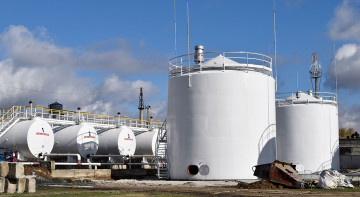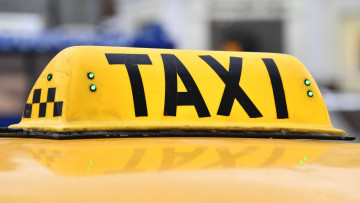Obtaining a medical practice license
A medical practice licence is a permit issued by the relevant authority or institution to carry out medical practice. Usually, you need to pass certain qualification requirements, training and/or exams to prove your ability and competence in the medical field. The procedures and requirements for obtaining a licence may vary from country to country and jurisdiction to jurisdiction. In most cases, this applies to doctors, nurses, pharmacists and other healthcare professionals who have direct contact with patients. Other types of licences may be required for specialists in the field of medical technology, manufacturers of medical equipment and other medical-related fields.
Obtaining a medical practice licence in Ukraine is mandatory for all medical professionals who carry out medical activities directly with patients. The procedure for obtaining a licence includes graduation from a medical school, after which the applicant must pass a qualification exam.
After successfully passing the exam, a medical professional is entitled to obtain a licence to practice medicine. This licence confirms the qualifications and the right to work in the medical field. For more information on the specific procedures and requirements for obtaining a medical practice licence, it is recommended to contact the Ministry of Health of Ukraine or medical institutions that provide training and certification of medical professionals.
Legal stages of obtaining a medical practice license
This process includes several key stages, each of which has its own characteristics and requirements:
- Education: This stage involves obtaining a medical degree from an accredited medical school. After graduation, the applicant receives a diploma or degree.
- Preparation for the exam: After graduation, a healthcare professional prepares for the qualification exam. This may include self-study, refresher courses, or participation in preparatory programmes.
- Passing the exam: A healthcare professional must pass a qualification examination conducted by a specialised body or commission.
- Issuance of a medical practice licence: Upon successful completion of the exam, a medical professional may apply to the relevant authority or medical council for a medical practice licence. This process involves submitting the required documents and paying a fee.
- Further certification: After obtaining a licence, a healthcare professional may be subject to periodic certification to confirm their competence and professional knowledge.
Thus, each stage of obtaining a license for medical practice plays an important role in ensuring a high level of professionalism and compliance with established standards. Compliance with these steps ensures that medical services will be provided safely and effectively.
Under what conditions can the service of obtaining a medical practice license be provided?
Provision of services is associated with compliance with a number of important conditions that ensure the safety and quality of patient care:
- Licence and qualifications: A healthcare professional must be licensed and qualified to provide healthcare services. This ensures that they have the necessary knowledge and skills to provide quality healthcare.
- Patient consent: The patient must consent to the provision of a healthcare service after being properly informed of the nature and possible risks of the service.
- Ethical and professional standards: A healthcare professional must act in accordance with the ethical and professional standards stipulated by the relevant medical codes and regulations.
- Compliance with the law: The provision of healthcare services must comply with the requirements of the legislation governing medical activities, including licensing, safety and quality regulations.
Compliance with all necessary conditions is key to ensuring the legal and effective provision of medical services. This guarantees patient safety and compliance with high standards of quality of medical care.
Under what conditions can the service of obtaining a medical practice license not be provided?

Lack of licence or qualification: If a healthcare professional does not have the appropriate licence or does not have the necessary qualifications to provide a specific medical service.

Non-compliance with ethical and professional standards: If the healthcare activity does not meet the ethical or professional standards set by healthcare organisations or the law.

Violation of the law, conditions for obtaining a medical practice licence: If the provision of medical services is contrary to the law, for example, if it is illegal or violates the rights of patients.
How to obtain a medical practice license on your own?
Following certain steps and tips will help make this process more understandable and effective:
- Research: Start by researching the relevant laws and regulations that govern medical practice in your country or region. This may include healthcare legislation, medical practice licensing rules, and other relevant documents.
- Consultation with professionals: If possible, contact medical professionals or legal advisors who can provide you with information and advice on the licensing process and the provision of medical services.
- Consultation with medical institutions: Contact medical institutions or organisations that have experience in this field. They can provide you with information about the procedures, requirements and resources available for obtaining a licence and providing medical services.
- Assess your own capabilities and resources: Prepare an action plan to determine what steps you need to take to obtain a medical licence. Consider your education, work experience, and the resources available to you to achieve this goal.
- Follow procedures and be patient: The process of getting a licence and understanding medical practice can be complex and time-consuming. Follow the procedures, be prepared for challenges, and learn during this process.
Independent understanding of the licensing process requires careful research, consultations with specialists and compliance with all necessary procedures. This approach allows you to prepare for the successful receipt of a license and ensure that medical practice meets established standards.
Frequently asked questions about a medical practice license in Ukraine
Question
What documents are required to obtain a Medical License?
Answer
The documents that are usually required to obtain a Medical License may vary depending on the legislation of the country or region. However, the main documents that are usually required include: Application for a medical practice licence: An application form that must be completed to apply for a licence. Documents on education and qualifications: Information about your medical education, diplomas, certificates of completion of training courses, licences, etc. Personal identification documents: A passport or other official document that proves your identity. Medical certificates and health certificates: Some countries may require medical certificates to prove your fitness to practice medicine. Certificate of successful completion of the qualifying examination: If required, a document that proves your ability and qualifications. Documents of professional liability insurance: In some countries, this may be mandatory for medical professionals.
Question
How long is the Medical License valid for?
Answer
The validity of a medical practice licence may also vary from country to country. Usually, the licence has a limited validity period and requires periodic renewal or maintenance of status.
Question
Where to pay for a Medical License?
Answer
Payment for the Medical License is usually made through the relevant authorities or government agencies responsible for regulating medical activities in the country or region.
What does the cost of obtaining a medical practice license depend on?
The price depends on several key factors. First, the type of medical activity for which a license is obtained affects the complexity and volume of necessary documentation. Secondly, the level of training and qualifications of the staff is important, as some specializations may require additional certifications or confirmation of qualifications. The availability of appropriate equipment and compliance of the premises with established standards may also affect the cost. In addition, the region in which the practice will be carried out is taken into account, as requirements may vary depending on local regulations. Finally, the urgency of document processing may affect the total cost of the service.
ConclusionObtaining a license to practice medicine is a complex but important process that ensures that medical services are provided at a high level and in accordance with the law. Compliance with all stages, conditions and rules helps medical professionals provide high-quality and safe care, and patients receive professional service.




































